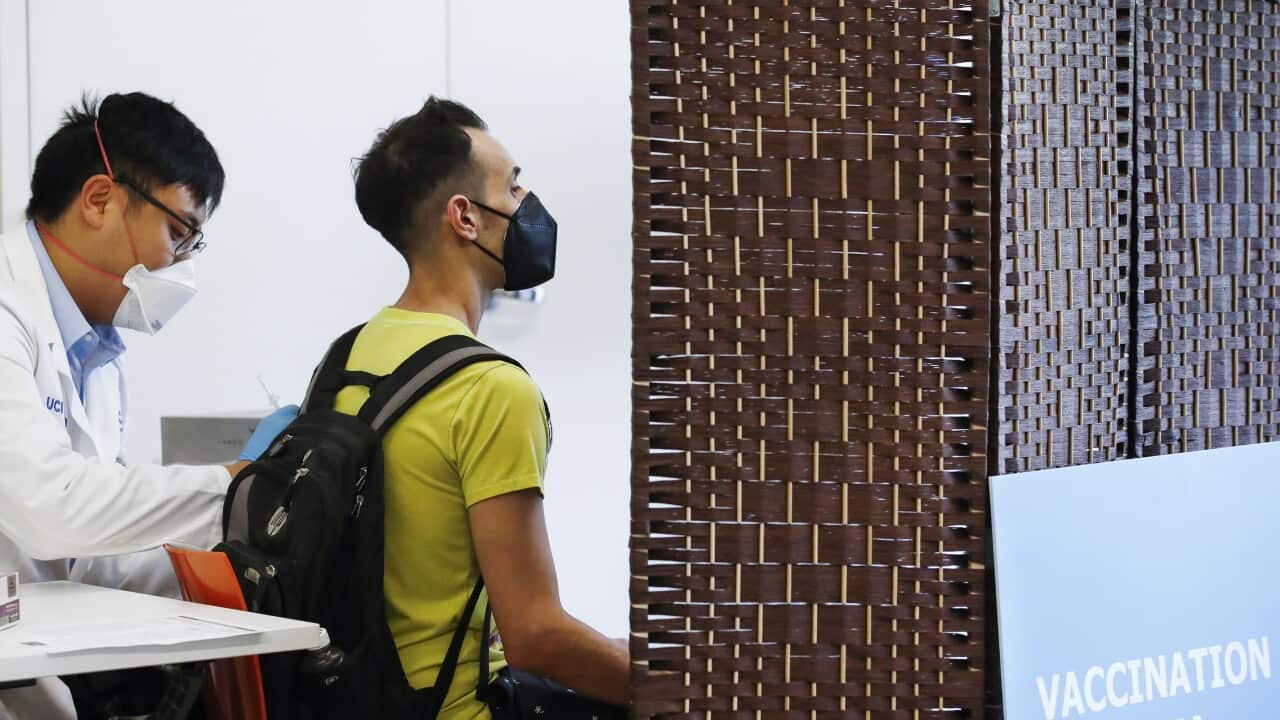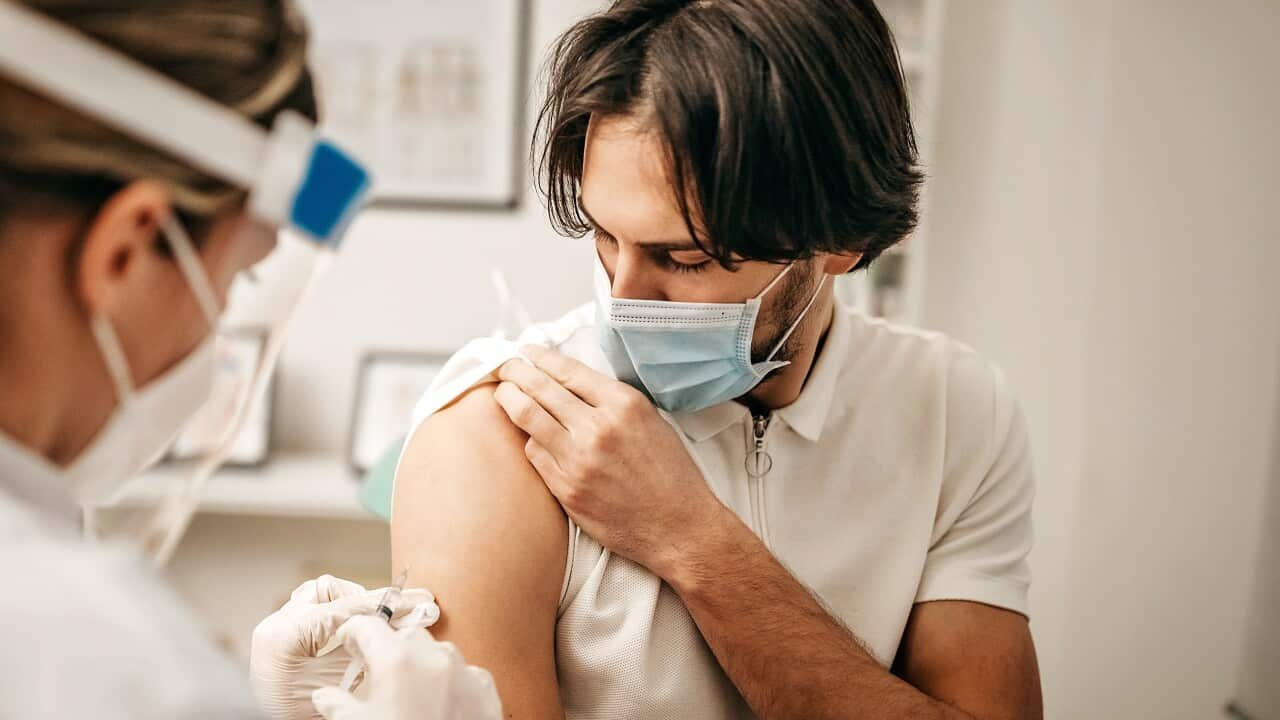The rollout of the monkeypox vaccine in Australia has kicked off, with those at highest risk of contracting the disease being prioritised.
Nearly half a million doses of the Jynneos smallpox vaccine have been secured by the federal government, with 22,000 doses in the first batch, and will be mostly available through state and territory sexual health clinics.
How will the monkeypox vaccine be used?
The vaccine can be used to prevent the transmission of the monkeypox virus, or as a post-exposure treatment so people can get some protection after potentially being exposed to the virus.
Guidelines for who is eligible for the limited number of vaccine doses have been put together by the Australian Technical Advisory Group on Immunisation (ATAGI).
According to ATAGI, intimate partners and those who live with someone who is confirmed to have the virus or have had close physical contact with an infected person will be among those given first access to the vaccine.
Given that 98 per cent of those recorded as having contracted the virus in the current outbreak in Australia have been gay or bisexual men, these groups are understood to be at a higher risk of exposure to monkeypox and will be prioritised for access to the vaccines.
How many monkeypox cases have been recorded in Australia?
While the Health Department has not provided a breakdown of how the vaccine doses will be distributed between states and territories, it's understood NSW is being sent 5,500 of the initial 22,000 doses.
NSW — which has recorded 31 of Australia's 57 monkeypox cases — began rolling out the vaccine on Monday.
Is there sufficient supply of the monkeypox vaccine?
Head of the HIV Epidemiology and Prevention Program at the University of NSW's Kirby Insitute, Professor Andrew Grulich, said it appeared likely Australia would look to vaccinate the majority of gay and bisexual men in the country.
Given this, he said 450,000 vaccine doses was a “very good amount”, but the situation would have to be monitored as "if the virus began spreading more widely, more doses would likely be required".
“We need to keep our eye on this epidemic just to make sure that it's not spreading beyond the populations who are currently being affected,” he said.

Australia has secured access to 450,000 doses of the 'third generation' monkeypox vaccine. Source: Getty / SyhinStas
"We don't know what the trajectory of this virus is going to look like,” she said.
“Essentially, we understand that there are two doses required for people for maximum protection; there’s a little bit of unknown around how long this will last and how frequently this might need to be boosted or how frequently the vaccine will need to be administered.
“It's important for there to be efforts to make sure there are sufficient vaccines for demand.”
'No way' the monkeypox vaccine can cause disease
A smallpox vaccine that also protects against monkeypox (ACAM2000) is already available in Australia, but its potentially rare but serious side effects meant it was not recommended for mass vaccinations.
The use of the live virus in ACAM2000 was what increased the risks for those who are immunodeficient.
Professor Grulich said the potential side effects of the monkeypox vaccine that Australia already had access to, but was not administering widely, were not a concern with the Jynneos vaccine, made by Danish firm Bavarian Nordic.
“The third generation vaccine is based on a virus which is unable to replicate. So there's no way it can cause disease, even in a person with immune deficiency, and so for that reason, is safe to give to all populations,” he said.

NSW has recorded the majority of the cases of the virus so far. Source: iStockphoto / angelp/Getty Images
Should we change the name of monkeypox to prevent stigma?
Ms Price said there is not only stigma around the monkeypox virus, but its spread in the gay community could also be a trigger for some.
“There's a virus that we don't know a lot about, it has skin lesions, and to some extent, it's being shared. Also, the virus has been transmitted through sexual networks,” she said.
“These things have shades of the early days of HIV and the HIV experience for some people, so that is quite triggering and adds to the level of stress around monkeypox.”
Ms Price also suggested a switch to using the scientific name for human monkeypox could reduce the stigma around the virus.
This isn't a gay disease, anybody can get it.Karen Price, Acting CEO of ACON
“Monkeypox is a quite alarming name; it sounds distressing.
“The best thing that we can do to protect not only the health of those people most at risk right now, but also people who might be at risk in the future is to start treating this virus like many other things, like when we first started talking about Coronavirus, and it moved to COVID-19.
“Maybe there's a language shift that's needed from monkeypox to a different type of language around this MPX or MPX-V.”
“This isn't a gay disease, anybody can get it.
“Stigma has a profound impact on the way that people access health care. And it can for some people, prevent them from reaching out and getting access to the health care that they need.”











